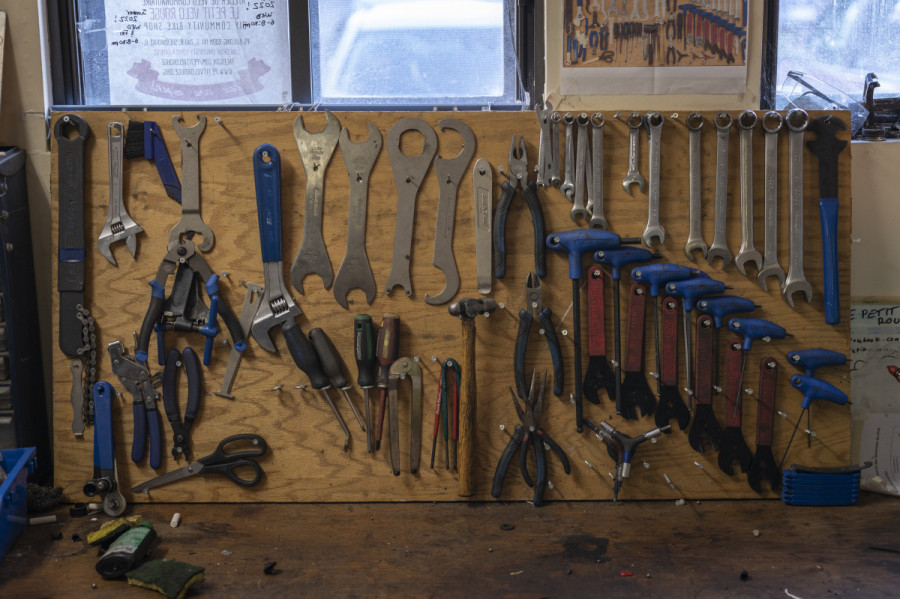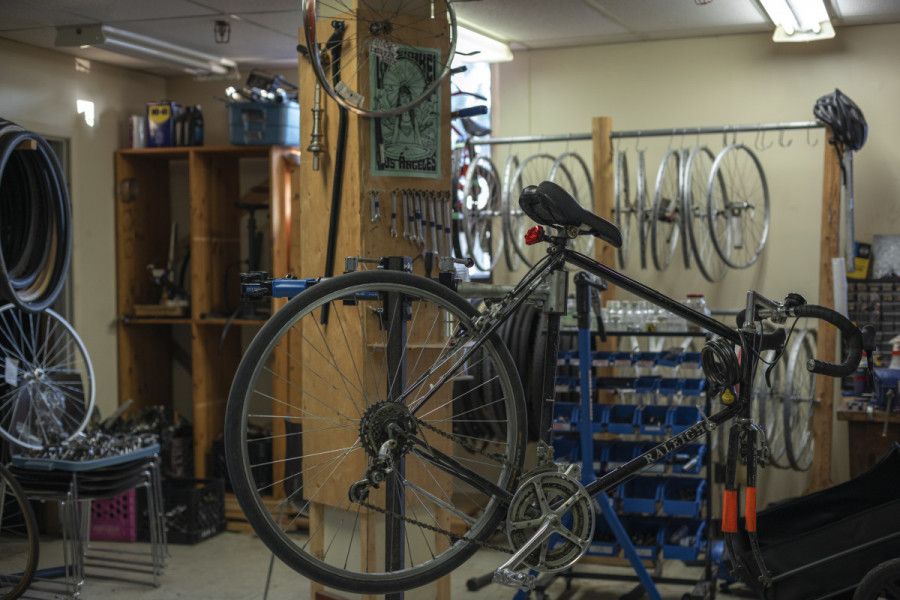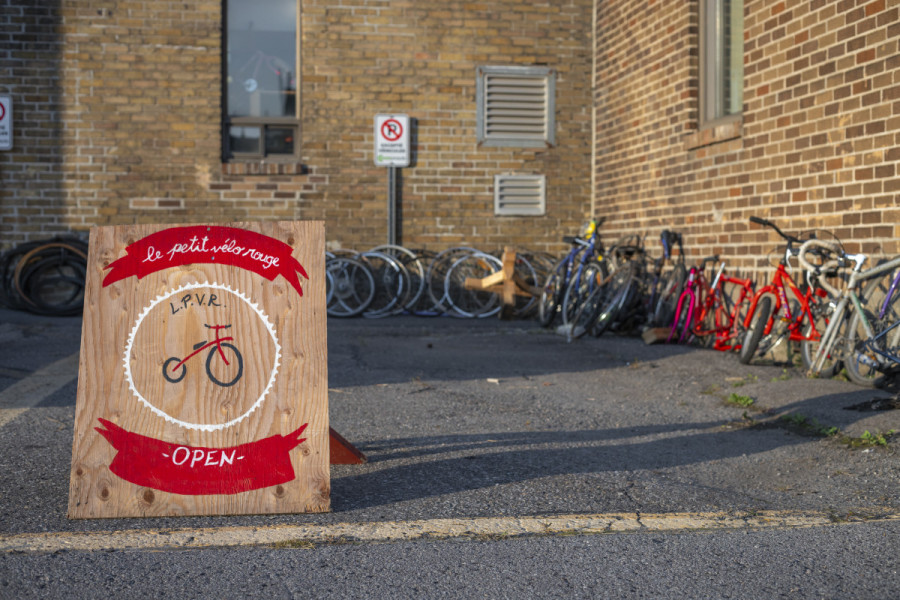Le Petit Vélo Rouge: The Loyola Campus’ Fix-It-Yourself Atelier
An Affordable Bike Repair Shop Set in A Community-Driven Space
Tucked around a corner of the Loyola campus, Le Petit Vélo Rouge is a non-profit community bike shop that helps cyclists learn how to repair and take care of their two-wheeled ride.
LPVR has been around campus since 2016, but has now reopened after a two-year closure due to the pandemic. Their doors are open from 6 p.m. to 8:30 p.m. on Wednesdays and from 5 p.m. to 7 p.m. Fridays, all year round.
Volunteers at LPVR all share the same goal: making biking more accessible and affordable to Concordia students and the Notre-Dame-de-Grâce community. The shop is pay-what-you-can and lives off donations and optional subscriptions.
As Montreal has been named the cycling capital of North America, the city has been undertaking major infrastructural changes to accommodate cycling into road traffic over the past few years. The city is now home to 889 km of bike lanes, making biking safer and more accessible to the everyday commuter.
The cost of purchasing and keeping a bike in good shape through Montreal’s rough seasonal changes however, represents a financial struggle for many students. “I bought a $70 used bike when I moved to the city last year and spent over $300 in repairs since then, it turned out to be a huge money pit,” said Antoine Bernard, a Concordia international student.
“We can basically give everyone the tools and the knowledge they need and all they have to do is be there to use the tools.” — Erik Huang
“For a lot of [other] bike shops, it’s not worth the bike shop’s time and it’s not worth the client’s money to work on a lot of the shitty bikes that they get,” said Erik Huang, a volunteer at LPVR since 2016.
“In here, since no one is trying to make money off of you, hopefully that stress can come out and when we teach people how to care for a bike and how to do the maintenance they can do the first major fixes” said Samuel Little, another volunteer.
As Huang explained, the number one way to keep a bike up and running is to do preventive care. “An ounce of prevention is better than a pound of cure, so if you’re regularly lubricating your chain, keeping air in your tires, keeping your cables tight, checking your brakes, things that can take you 15 minutes a week, you will save a two-hour maintenance trip once a month,” he said.

While LPVR educates cyclists to be autonomous, it also provides all the specialized tools that most casual cyclists don't have laying around in their garage. “We can basically give everyone the tools and the knowledge they need and all they have to do is be there to use the tools,” said Huang.
Anyone has a rusty old frame in their garage and LPVR encourages people to give it a second life. “It's something they could take on as a winter long or summer long project,” Little said. “And by the end of it, have a bike that maybe their father rode and carry it on.”
Taking an old bike and tearing it apart to build it up again is also a great way to learn. This is the assignment given to new volunteers—who have no prior experience around bicycles—that come into the shop wanting to learn all the ins and outs of bike mechanics. “Once they get to know how things get together, they’ll choose a frame they really like and they’ll build it up into a bike project of their own,” Huang explained.
To cover its expenses, the shop often sells these refurbished bikes and gives them new homes. “It saves everybody money and it also empowers the community to be able to reuse and keep these old bicycles rolling throughout their lives,” Little said.

In total, about eight volunteers currently operate the shop. During the biweekly shifts, the atmosphere is friendly and the room quickly fills with laughter, music and the smell of bike grease.
“There’s a lot of fun things to do and we’re all mostly friends here, we have a good social setting and we get some work done at the same time,” said Little. Spending time at the shop is also a great way to meet people and get connected to other cycling and sustainability initiatives around Concordia and Montreal.
LPVR’s hidden location in Loyola’s Physical Services building next to the Oscar Peterson parking lot makes the place too little-known to students, but it is an invaluable resource to the local community.
This article originally appeared in Volume 43, Issue 2, published September 13, 2022.







_600_375_90_s_c1.jpg)